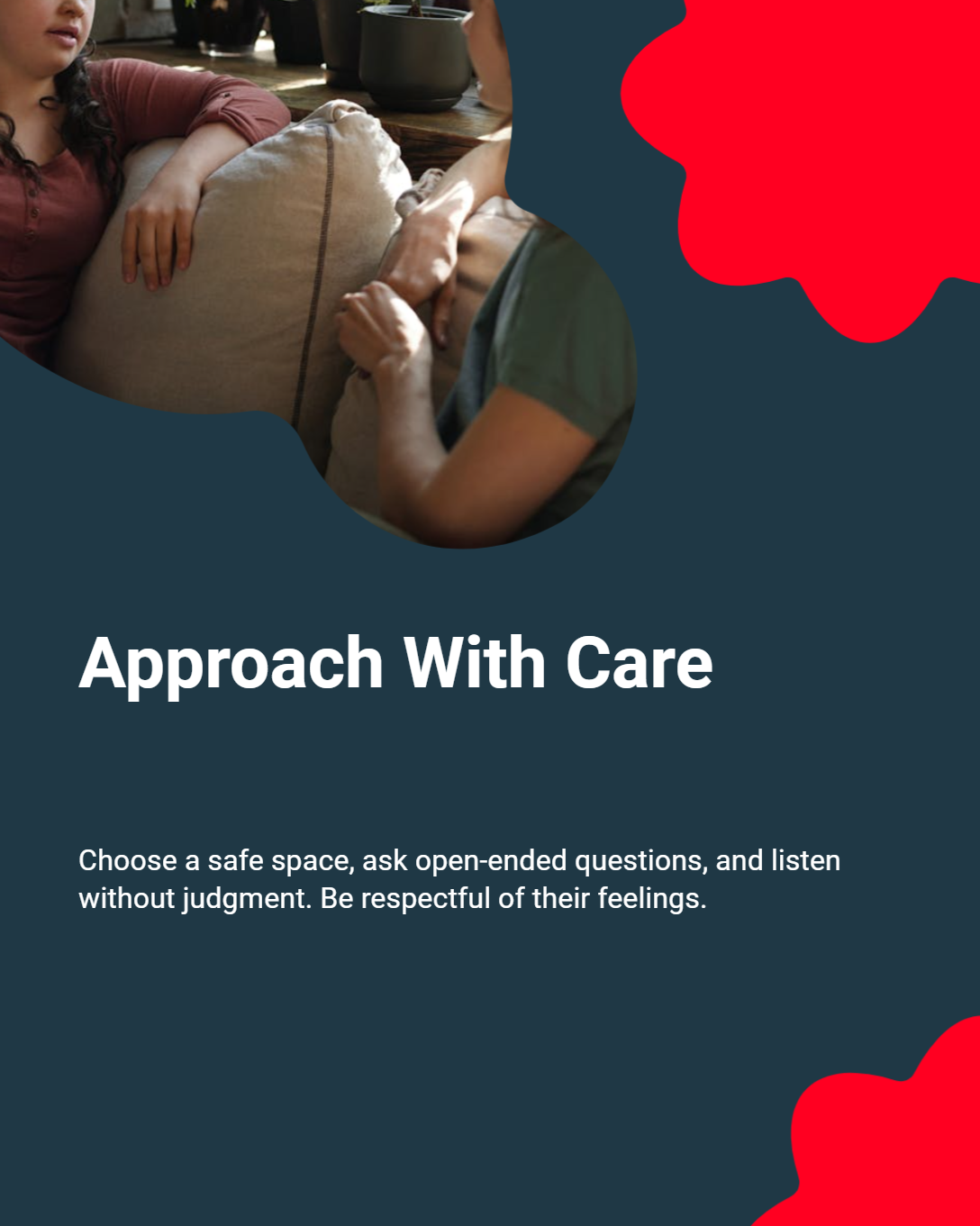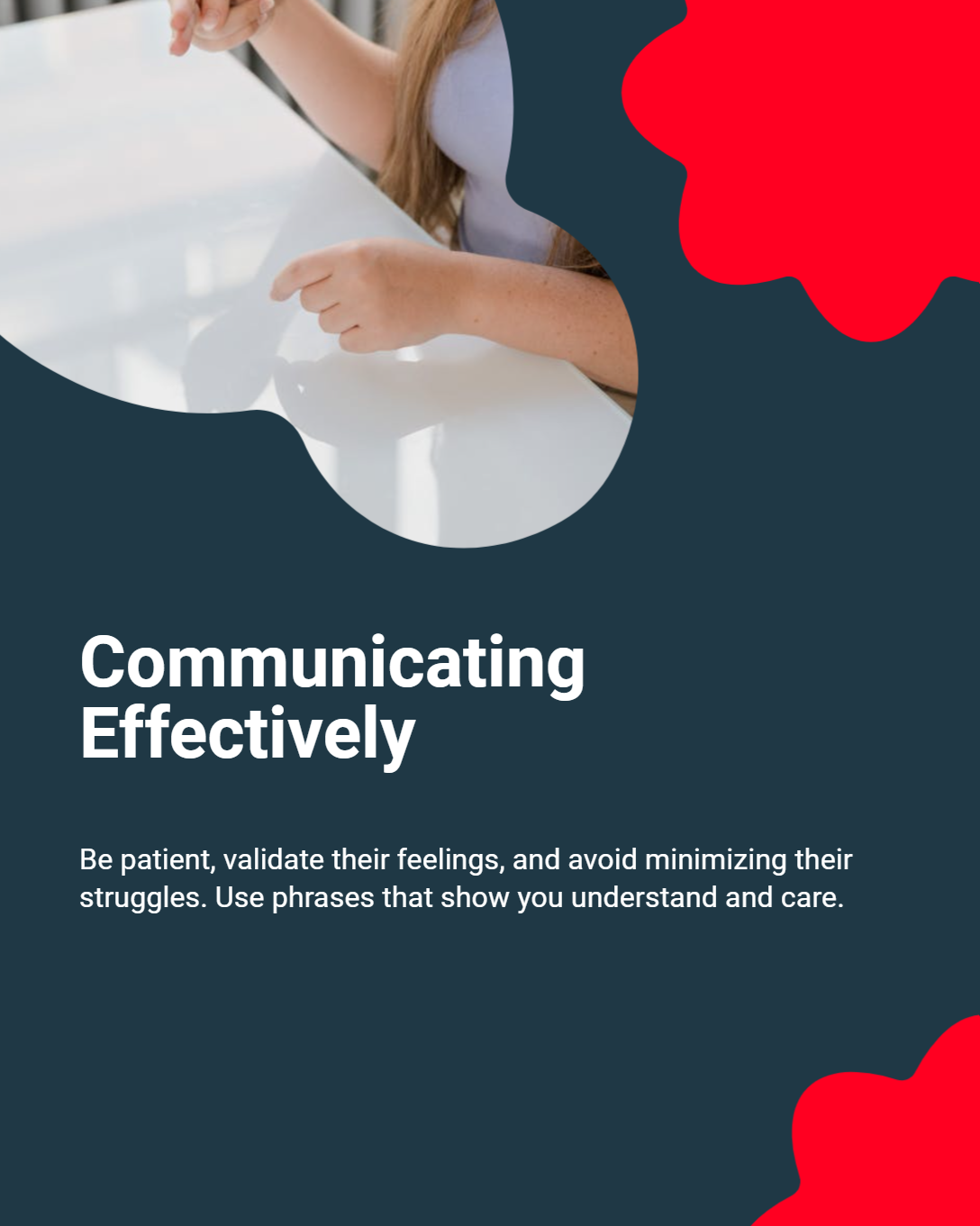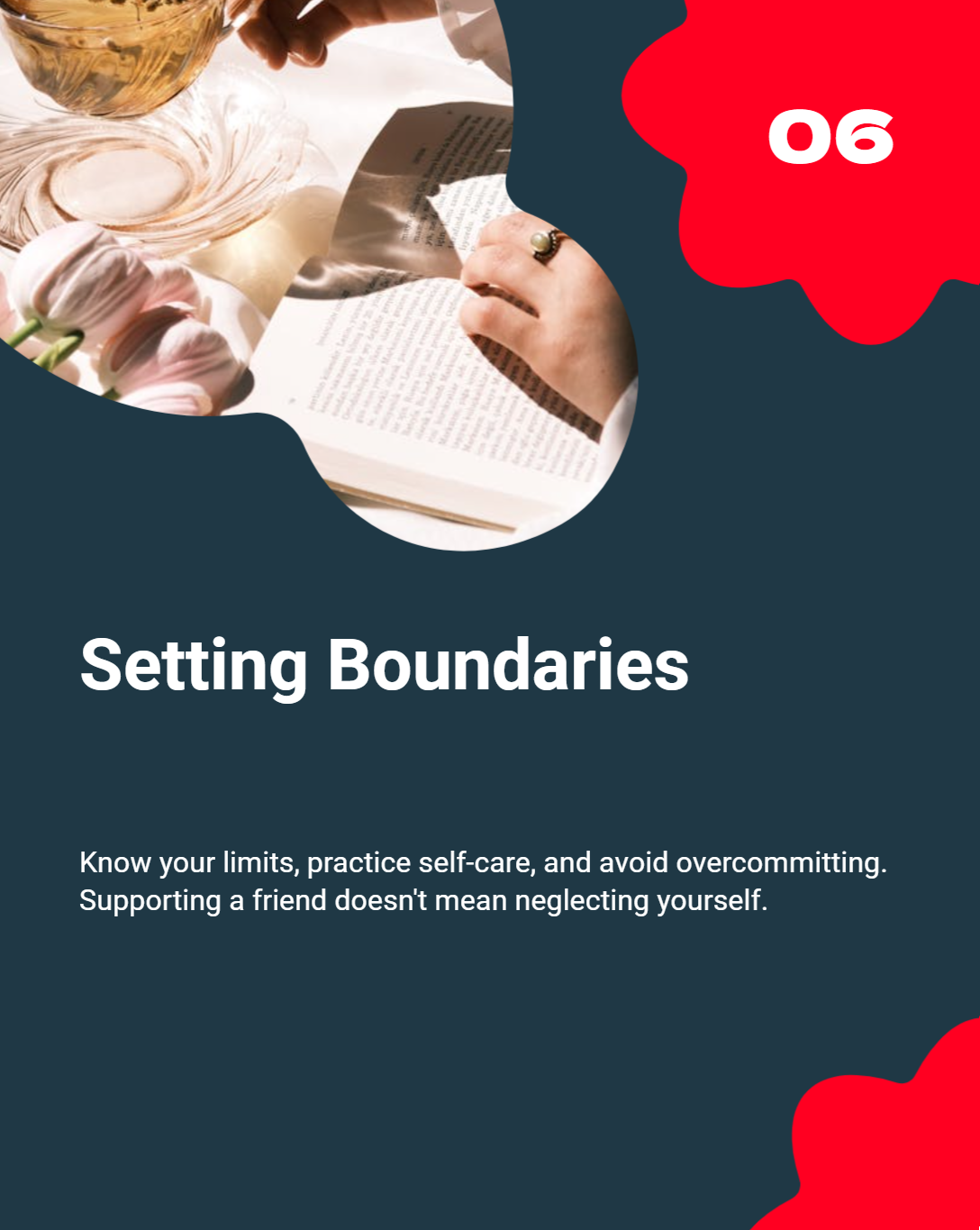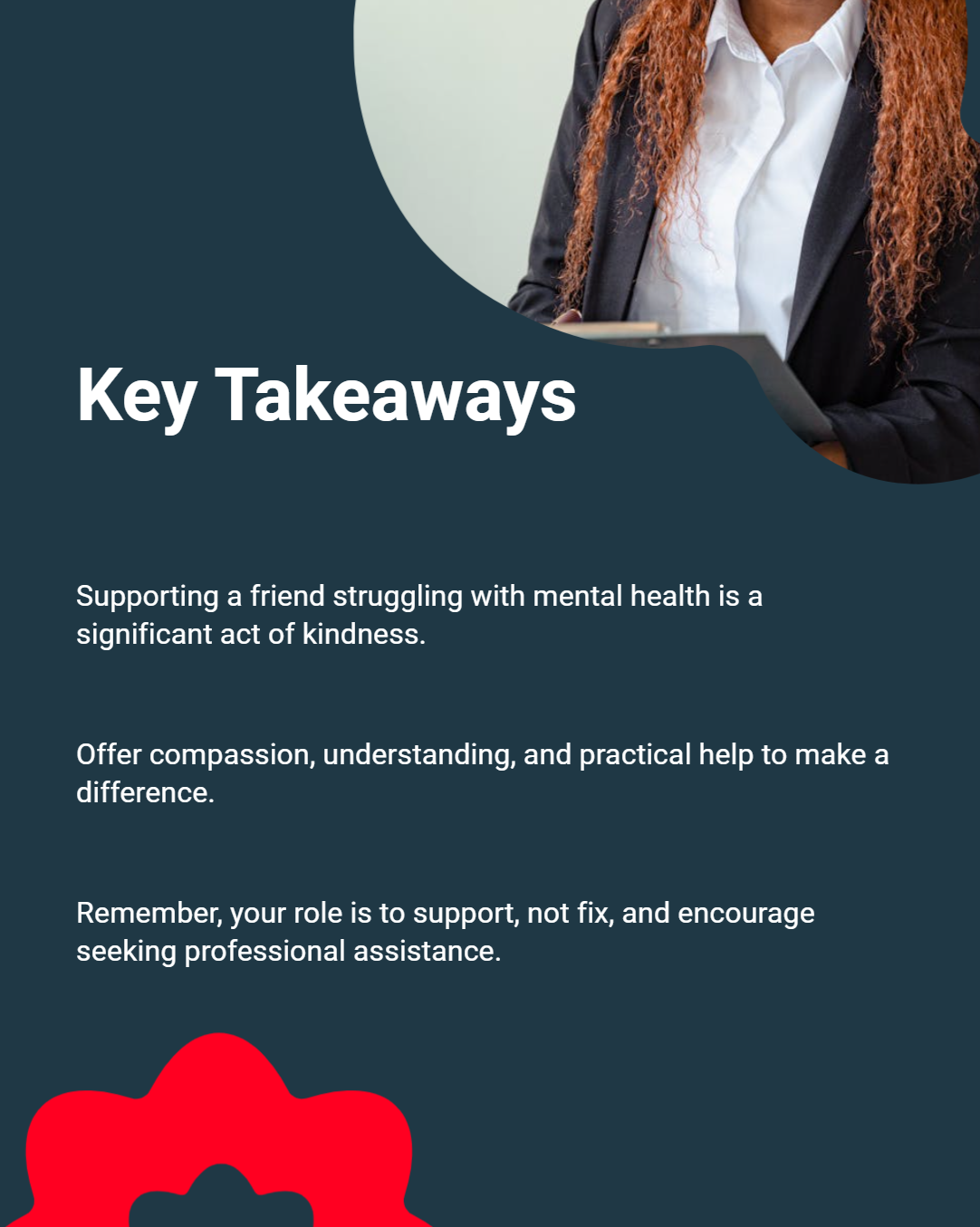Supporting a friend who is dealing with mental health challenges can be both rewarding and challenging. Knowing how to help them effectively requires compassion, understanding, and patience. In this guide, we’ll explore practical ways to be there for your friend while maintaining your own well-being.
Mental health challenges can manifest in various ways, including anxiety, depression, stress, or more severe disorders. Each person's experience is unique, so learning the basics about mental health is a good first step in providing meaningful support.
Look for signs such as persistent sadness, irritability, or frequent emotional outbursts.
Withdrawal from social activities, changes in sleeping or eating habits, and neglecting responsibilities can indicate trouble.
Unexplained fatigue, headaches, or other physical complaints can sometimes be linked to mental health issues.

Initiate the conversation in a private, comfortable setting where your friend feels safe.
Ask questions like, “How have you been feeling lately?” or “Is there anything you want to talk about?”
Listen without interrupting or offering immediate solutions. This helps them feel heard and validated.

Allow your friend to express themselves at their own pace.
Say things like, “It’s okay to feel this way,” or “That sounds really tough.”
Phrases like “Just snap out of it” or “Others have it worse” can be harmful.
Offer assistance with chores, cooking, or errands to reduce their burden.
Suggest they consider therapy or counseling and offer to help them find a professional.
Check on them regularly and encourage them to stick to their treatment plan.
Invite them for a walk or join a yoga class together to improve their mood.
Encourage journaling, meditation, or engaging in hobbies.
Model healthy habits in your own life, such as maintaining a balanced diet and getting enough sleep.

Supporting a friend doesn’t mean neglecting your own mental health. Here’s how to maintain balance:
Understand when to seek help from professionals rather than handling everything yourself.
Take time for activities that recharge you emotionally and physically.
Recognize that you can’t pour from an empty cup; focus on being consistent rather than overextending.
If your friend appears to be in immediate danger, such as talking about self-harm or suicide:
Offer your full attention and listen without judgment.
Contact a crisis hotline or professional help if they are unwilling to seek assistance.
Call emergency services if the situation becomes life-threatening.
Read about mental health conditions to understand your friend’s experience better.
Ask your friend how you can improve your support.
Supporting someone with mental health challenges is a long-term effort that requires patience and understanding.

Supporting a friend struggling with mental health challenges is a meaningful act of love and kindness. By being there with compassion, understanding, and practical help, you can make a significant difference in their journey to recovery. Remember, your role is to support, not to fix, and sometimes, the best thing you can do is encourage professional help.
Choose a quiet, private place, and approach the topic gently with open-ended questions like, “I’ve noticed you’ve been feeling down lately. Would you like to talk about it?”
Respect their decision but continue to check in regularly. Suggest professional help gently over time and let them know you are there when they are ready.
Practice self-care, set boundaries, and seek support from a counselor or trusted confidant if needed.
Signs like persistent sadness, inability to function in daily life, or thoughts of self-harm indicate the need for professional intervention.
Yes, offering empathy, listening without judgment, and being present can make a world of difference even if you don’t fully understand what they’re going through.
 10.01.2025
10.01.2025